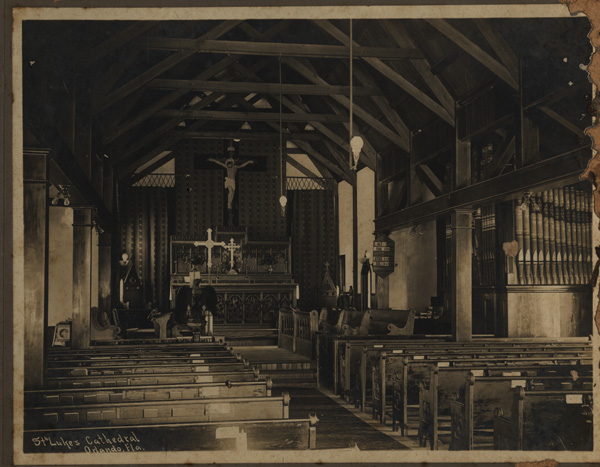Count The Stars: Hope
This article was first written for and published by BreakPoint.
One clear night, I went camping with friends on the banks of the Chickamauga Lake, just down the street from my house when I was a teenager in Tennessee. About one or two in the morning we put a canoe in the water and rowed out into the middle of the lake 150 yards from shore, until our campfire became a tiny dot of orange on the sand.
There, in the middle of the lake, surrounded by darkness and the sound of water splashing up against our canoe, we’d lay back and stare in awe at the millions of stars above our heads, stars that were only visible to us because of the blue, purple, and black darkness of the night sky.
Little-known poet, Sarah Williams, wrote, “I have loved the stars too truly to be fearful of the night.” My song, “Count the Stars,” is a song about this: being too fond of the stars to be afraid of the night. It’s a song about being too fond of God’s promise to surrender to my doubt, too fond of Christian hope to surrender to despair.
“Count the Stars” was written a number of years ago for my church as we studied the darkness, doubt, despair – and hope – of Abraham and Sarah from the book of Genesis. Theirs is a heartbreaking story of infertility, but also one whose promise of hope was declared in the stars lighting the darkness.
Astute Bible readers will note that the entire biblical narrative hangs on whether or not God blesses them with a son. Only through Abraham’s lineage do we get the Messiah. Only through the Messiah do you and I get grafted in to Abraham’s family. In other words, there is a sense in which weare some of the stars God told Abraham to count in Genesis 15!
Back at church, during the sermon series, some close friends of ours were, like Abraham and Sarah, struggling with infertility. Our community watched as Paul and Jessica longed for a child month after month. Amidst the tearful conversations and processing we had with Paul and Jess, one truth hit me the hardest: the emptiness of Jess’ womb was not the worst part of the pain.
The worst part was the hope required of Paul and Jess to continue coming to church, to continue praying, to keep rejoicing with every new expecting mom in our church, and to keep trying – again and again – for a child of their own. Hope was the hardest part.
Hope, according to philosophers like Friedrich Nietzsche and Albert Camus, is absurd, senseless, and stupid; especially religious hope. “Hope,” wrote Nietzsche, “is the worst of all evils because it prolongs the torments of man.”
People with religious hope, Camus said, are like the character of Sisyphusfrom Greek Mythology, a man sentenced by the gods to roll a rock up a hill everyday only to have it tumble back down once he reached the top.
But, their “hope” is not our hope.
Abraham and Sarah’s story in Genesis is paradigmatic of God’s hope-filled way of doing things in the Scriptures. Their story asks us to read the Bible through a kind of hermeneutic of hope.
God seems drawn to human emptiness like a moth to a flame, anxious to fill the widow’s jar with oil, the barren wombs with life, the darkness with light, the wedding jars of Cana with wine, the bellies of the crowds with loaves and fish, and the tomb with resurrection. Against the backdrop of human doubt, God’s glory, like the stars, shines brightest.
May the same be true for us – that we would see God’s glory, especially in the Promised One, Jesus Christ, shining brighter than our dreams for ourselves.
The Gospel Coalition #TGC19 Playlist
A couple of the hymns I recorded for Come Away From Rush & Hurry made it onto a great playlist the Gospel Coalition put together as a soundtrack to their conference. You can check out the entire playlist here:
Really glad these hymns, “Blest Are The Pure In Heart” and “At The Cross Her Vigil Keeping” are getting some exposure. They have blessed me tremendously. The first time I heard “At The Cross…” was during Lent. We prayed each verse of the hymn in between the Stations of the Cross liturgy. It was as beautiful as it was haunting.
“Blest Are…” is certainly a memorable text but it was the melody that first lodged in my heart and mind. I heard this gem a few years ago for the first time.
Anyway, I’m so grateful to be included on a playlist like this, with so many artists I both listen to and admire. I hope you’ll enjoy and share the playlist on Spotify or Apple Music or wherever you get your tunes!
Here’s the playlist/article from TGC’s website.
JB
The story behind the album art for "Come Away From Rush and Hurry"
Saint Mary's Chapel (The "Lady Chapel"), 1950s
It was a gift to me to have permission to use archived photos of the Cathedral Church of St Luke - Orlando, FL as the artwork for my upcoming album. The Cathedral is my home parish, my church family, the place I've served since 2015, and the place I was ordained as a Transitional Deacon, and then a Priest. I love my church.
Cathedral Church of Saint Luke, Front, 1940s
It's also the place where I first heard many of the hymns that I recorded for Come Away From Rush and Hurry. Despite having grown up in the church, singing hymns, I had never heard the likes of, "...and to their longing eyes restored, the Apostles saw their risen Lord..." a great 5th Century Latin text translated by J.M. Neale (a poet, musician, priest, and scholar). I had never sung at a funeral, or any other service, "The strife is o'er, the battle done, the victory of Christ is won..." Singing these hymns, directly from worn out hymns books, over the past few years, has been staggeringly awesome, in the true sense of the word.
Cathedral Church of Saint Luke, Inside, 1910s
So, it was very important and meaningful to me to get to utilize images of the Cathedral for the album's artwork. The building is indelibly connected to the songs themselves, for me. And, as I've mentioned elsewhere, I did much of the piano tracking inside the Cathedral, after work, when things got quiet. Those were very special recording sessions for me, in such a sacred place.
Get the album: "Come Away From Rush And Hurry"





